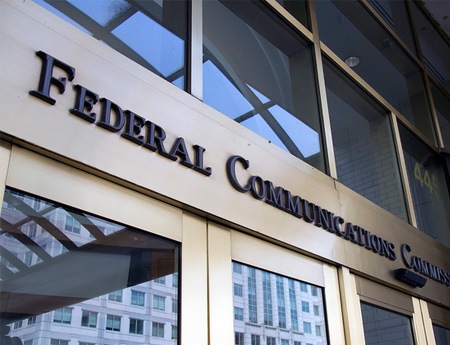NAB, NATOA Sue FCC Over Effective Competition Decision

The smarter way to stay on top of broadcasting and cable industry. Sign up below
You are now subscribed
Your newsletter sign-up was successful
Broadcasters and local franchise authorities have filed suit in federal court to block the FCC's decision that cable operators are subject to effective competition unless proved otherwise.
The National Association of Telecommunications Officers and Advisors (NATOA) and the National Association of Broadcasters (NAB)—along with a local franchise authority in Minnesota—filed the suit, saying the FCC decision was "arbitrary, capricious, an abuse of discretion." The suit was filed in the U.S. Court of Appeals for the D.C. Circuit, which has primary jurisdiction over FCC decisions.
NAB told the court that in markets deemed to be competitive, "cable operators are likely to deny any obligation to carry broadcasters who have negotiated retransmission consent agreements on the basic service tier that must be offered to every subscriber." Cable operators have pointed out that has not happened in the hundreds of markets deemed to be competitive in recent years.
The FCC, in a 3-2 vote (Democrats Jessica Rosenworcel and Mignon Clyburn dissented), reversed the presumption of "not competitive" following a mandate from Congress to review the effective competition regime to make it easier on smaller cable operators.
The FCC majority concluded it was time to make it easier for all operators and in June voted to reverse the presumption and assume cable operators face competition for traditional video in their local markets unless a franchise authority or other party can demonstrate otherwise.
An effective competition decision removes basic rate regulation.
The decision reduces paperwork for cable ops, but as a practical matter should not change the landscape dramatically since the FCC has granted virtually all such requests in recent years thanks largely to the presence of DBS competition.
The smarter way to stay on top of broadcasting and cable industry. Sign up below
NAB was certainly not seeing it that way, however.
Scott Goodwin, NAB associate general counseland Steve Traylor, NATOA executive director and general counsel weighed in on the suit in a blog post, which extended the complaint about the FCC and its cable policy to FCC Chairman Tom Wheeler's proposed elimination of broadcast exclusivity rules.
"Last December in the satellite reauthorization bill, Congress instructed the FCC to make limited administrative changes in the processing of effective competition petitions filed by small cable operators.....FCC Chairman Tom Wheeler instead opted to push through an order that turned Congress’s directive on its head. Instead of mere administrative changes, the chairman proposed to deem the entire country effectively competitive – about as substantive a change as one could imagine," they said. "To make matters worse, Chairman Wheeler also proposed to make this change for all cable operators – big and small. So what should have been an insignificant adjustment ended up being a sand-shifter that cable’s biggest players could love.
"Unfortunately, this action appears to be only the first step that the Commission may take that gives cable operators – yes, cable operators – more leeway in and less oversight over their customer service. Not only did the FCC vote to disable an important check on cable companies at the local level, but now it is weighing whether to dismantle part of our nation’s localized system of broadcasting, which ensures that every local community has relevant news and information available to them. This trend is even more disturbing in light of cable’s rapid consolidation and truly dismal customer service record."
The National Cable & Telecommunications Assocaition, which backed the FCC decision, had no comment on the suit.
Contributing editor John Eggerton has been an editor and/or writer on media regulation, legislation and policy for over four decades, including covering the FCC, FTC, Congress, the major media trade associations, and the federal courts. In addition to Multichannel News and Broadcasting + Cable, his work has appeared in Radio World, TV Technology, TV Fax, This Week in Consumer Electronics, Variety and the Encyclopedia Britannica.

